Trump vs. Harvard: The Real Reason Behind the Ban on International Students
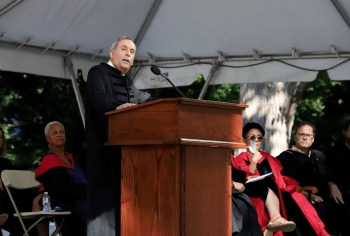 3 Life Lessons from Harvard University President's Speech 3 Life Lessons from Harvard University President's Speech |
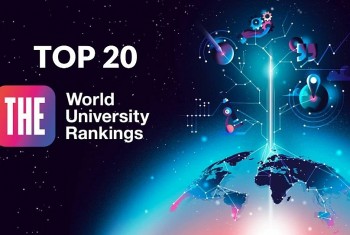 Top 20 Best Universities/Colleges in the World 2025 by Times Higher Rankings Top 20 Best Universities/Colleges in the World 2025 by Times Higher Rankings |
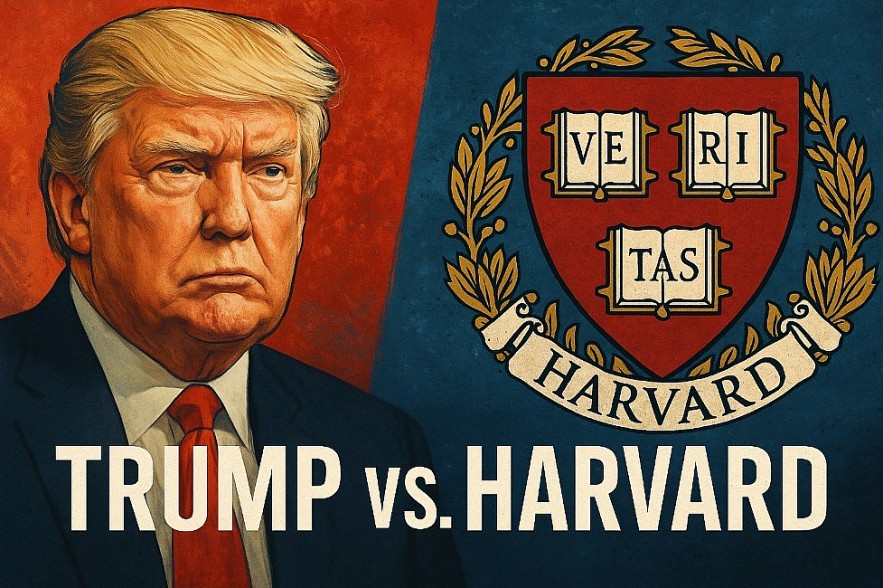 |
| Trump administration bars Harvard from enrolling foreign students |
1. The Ban: What Happened?
On May 22, 2025, the U.S. Department of Homeland Security (DHS), under the directive of President Donald Trump, revoked Harvard University's certification under the Student and Exchange Visitor Program (SEVP). This effectively prohibited the university from enrolling any new international students and placed current foreign students at risk of losing their visa status.
This marked the first time in modern U.S. history that a globally prestigious institution faced such direct punitive action on political grounds. The move caught higher education circles off guard and triggered international diplomatic concerns, casting a chilling effect on academic exchange and global educational mobility.
2. Official Justifications: National Security, Anti-Semitism, and Compliance
The Trump administration laid out several justifications for its drastic decision:
-
National Security Concerns: Officials claimed evidence showed Harvard enrolled students linked to the Chinese People's Liberation Army and related research bodies. Intelligence sources alleged that Harvard's open academic environment was being exploited for foreign espionage.
-
Campus Anti-Semitism Allegations: The administration cited high-profile incidents on campus, including pro-Palestinian protests and controversial guest speakers. Critics within the administration claimed Harvard failed to curb rhetoric hostile to Jewish students, a charge the university denied.
-
Lack of Oversight and Reporting: DHS accused Harvard of neglecting to report behavioral, academic, and legal violations involving international students, thereby violating SEVP transparency requirements.
-
Violation of "American Values": In a televised address, Trump claimed Harvard had become a "hub of anti-American ideologies," accusing it of "promoting radical, Marxist, and anti-Western views."
3. Political Motives: An Ideological Reckoning
At the heart of this decision lies a more personal and long-standing antagonism. Many observers believe that the true and deeper motive behind the action was not merely political opportunism, but a sustained grudge between Trump and the academic establishment. Harvard, as the most globally visible symbol of elite liberal academia, served as the perfect starting point in what appears to be a broader ideological crusade.
This wasn't just about one university — it was about sending a warning to all institutions that have openly resisted or criticized Trump’s agenda. In speeches and tweets, Trump has consistently derided "leftist professors," accused universities of indoctrination, and labeled academic elites as enemies of American greatness. The ban on Harvard’s international student program can be interpreted as the opening salvo in a more systematic campaign to dismantle the perceived intellectual opposition to his rule.
Experts argue that the ban was motivated less by policy than by a calculated political agenda. Several overlapping dynamics illuminate the underlying motives:
-
Weaponizing Culture Wars: Harvard has been emblematic of the liberal elite, often painted by conservative media as disconnected from middle America. By targeting Harvard, Trump rallied support from his base who distrust elite institutions.
-
Retaliation for Opposition: Harvard's faculty and alumni have consistently criticized Trump. Prominent professors supported impeachment efforts and condemned Trump’s immigration policies. This ban is widely seen as a retaliatory strike.
-
Anti-Immigration Agenda: Restricting foreign student visas aligns with Trump’s broader anti-immigration stance. By targeting the academic pipeline, the administration limited a key pathway for skilled immigration.
-
Precedent-Setting Authoritarianism: Some legal scholars warn this sets a dangerous precedent of executive overreach. They liken it to politicizing university charters as leverage against dissent.
 Is Harvard Really Free Now? The New Tuition Rule That Changes Everything Is Harvard Really Free Now? The New Tuition Rule That Changes Everything |
4. Harvard's Response and Global Repercussions
Harvard immediately denounced the decision as "an act of political intimidation" and filed a lawsuit in federal court seeking emergency relief. In parallel, the university sought support from international allies and partner institutions.
International Backlash Included:
-
British and Canadian officials condemned the ban and reaffirmed their commitment to academic freedom.
-
Chinese and Indian ministries of education called the action discriminatory and disruptive to student mobility.
-
The Association of American Universities (AAU) called the move "an existential threat to American global leadership in education and innovation."
Diplomatic ties were strained as embassies in Washington demanded clarification, and some foreign universities temporarily froze collaboration agreements with U.S. institutions.
5. Legal Showdown: Harvard v. Trump Administration
The lawsuit filed by Harvard claims the revocation violated:
-
The Administrative Procedure Act (APA), by lacking due process;
-
The First Amendment, alleging the action was retaliation for political speech;
-
Equal Protection, due to disproportionate targeting of one university.
As of June 2025, the case is being fast-tracked through federal court. Legal scholars anticipate it could reach the Supreme Court and redefine the limits of executive influence over academia.
6. A Long-Standing Antagonism: Trump and Higher Ed
Trump's contentious history with universities is well-documented:
-
Trump University Lawsuits: Long before politics, Trump was sued for fraud over the now-defunct Trump University.
-
Executive Orders on Campus Speech: Trump claimed universities suppress conservative views and threatened funding cuts.
-
Title VI Reviews: Under Trump, the Department of Education reviewed Middle Eastern studies programs for ideological bias.
In essence, Trump sees higher education as both a cultural adversary and a tool to reshape according to nationalist priorities.
7. Has Academia Welcomed Trump? Rarely.
While conservative universities like Liberty University have embraced Trump, elite institutions like Harvard, Yale, Princeton, and MIT have largely kept their distance. Faculty votes of no confidence, disinvitations, and open letters opposing Trump’s policies have been routine.
Even honorary degrees previously granted by some institutions were later revoked due to his political and rhetorical controversies.
Conclusion: A New Era of Educational Nationalism?
The 2025 Harvard ban is more than a flashpoint—it may herald a broader shift toward educational nationalism. If federal agencies can strip schools of rights based on ideological alignment, the entire American academic model, based on pluralism and autonomy, is at risk.
For Trump, this is about asserting dominance over an institution that defies his worldview. For Harvard and its peers, it's a battle for survival in a political climate increasingly hostile to intellectual independence.
The world watches closely: will U.S. universities retain their global standing, or become battlegrounds in a domestic culture war?
FAQs
Why did Trump ban international students at Harvard?
Officially, the administration cited national security risks and reporting compliance failures. But beyond the formal reasoning, many analysts see the move as the culmination of a deeper, personal animosity between Donald Trump and the American academic elite. Harvard was not only a convenient target — it was the symbolic epicenter of liberal thought and anti-Trump sentiment. This ban is considered by many to be a calculated act of political retaliation designed to intimidate the broader academic establishment and reassert executive control over ideological adversaries.
Is this the first time a U.S. university faced such a ban?
Yes. No Ivy League or major university has faced an SEVP decertification due to political considerations before.
Will this affect other universities?
A3: Possibly. Yale, Columbia, and Berkeley have expressed concerns they may be next if they oppose administration policies.
What happens to current international students at Harvard?
Without emergency legal relief, over 6,800 students risk losing visa status and may be forced to leave the U.S.
Can the court reverse the decision?
Yes, if it finds the action violated federal law or constitutional protections. A ruling is expected within months.
 Top 10 of the World's Best Universities by Times Higher Education Top 10 of the World's Best Universities by Times Higher Education Which school is the best and most prestigious in the world? That sounds like a list of well-known people. Check out our list below! |
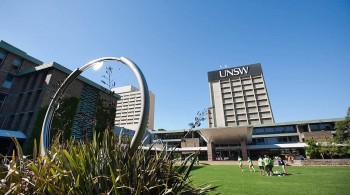 Top 10 Best Universities/Colleges in Australia by QS World Rankings Top 10 Best Universities/Colleges in Australia by QS World Rankings Explore the most prestigious universities in Australia based on the QS World University Rankings. |
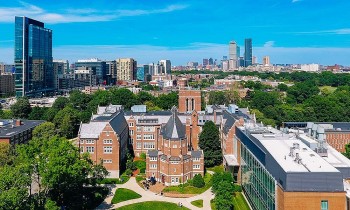 Top 10 American Colleges With the Best Locations, Ranked by Niche Top 10 American Colleges With the Best Locations, Ranked by Niche Location may matter when choosing a college. The right location can give students job opportunities, cultural experiences, and a supportive community. See the Top 10 ... |
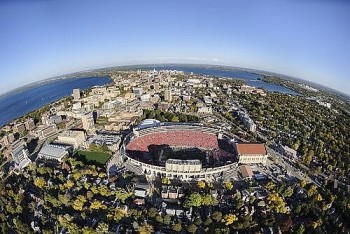 Top 20 Best Public Universities in the US, Ranked by US News Top 20 Best Public Universities in the US, Ranked by US News In the U.S. News & World Report list of the best universities, you can find the top 20 most prestigious public colleges in the country. ... |























